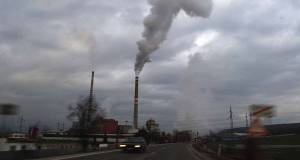- Policy
- Posted
EPA

EPA Director General Mary Kelly has expressed her confidence in the agency’s ability to operate the recently announced Office of Environmental Enforcement (OEE), stating ‘‘We have a body of extremely experienced and competent staff who will be able to hit the ground running”. The appointment, which is set to have implications for all defaulters of environmental legislation, signals a shift in the Agency’s resources and efforts towards enforcement. According to a senior government source, the OEE will grant the EPA unprecedented power to enforce legislation over areas such as waste management, and all forms of environmental pollution, both through local authorities and directly from the agency.
The remit of the OEE is to clamp down on illegal dumping and environmental pollution, whilst also having powers to impose financial penalties on Local Authorities if they fail to enforce environmental regulations properly in their areas. A Government source said that ‘the Minister believes that the lack of such a specific enforcement watchdog in the past has been the weak link’, continuing that the OEE will be ‘dedicated, professional and fully resourced with extensive powers with a specific focus on enforcement’.
With fewer licence applications now coming on stream, the focus for the Agency has been moving steadily to enforcement. Over the past year, the EPA has undertaken a strategic review of its activities and has restructured the organisation to allow a clearer focus on enforcement. All enforcement issues will now be dealt with in the Office of Environmental Enforcement, with licensing issues dealt with in the Office of Licensing and Guidance. The OEE will also take on the new priorities identified by the Minister, in particular dealing with illegal dumping activities and overseeing the performance of local authorities in carrying out their statutory environmental obligations.
 EPA director Padraic Larkin told Construct Ireland ‘We want toensure our own licence is properly managed and enforced with more rigour. The Public Authority Enforcement aspect will look at the myriad of environmental functions that Local Authorities have and will try to make sure that they carry them out with more success than they have been to date, or to at least carry them out well. Where local Authorities are seen to be dragging their heels or not doing as much as they should, then we will have a role to make sure that the law is enforced.’
EPA director Padraic Larkin told Construct Ireland ‘We want toensure our own licence is properly managed and enforced with more rigour. The Public Authority Enforcement aspect will look at the myriad of environmental functions that Local Authorities have and will try to make sure that they carry them out with more success than they have been to date, or to at least carry them out well. Where local Authorities are seen to be dragging their heels or not doing as much as they should, then we will have a role to make sure that the law is enforced.’Larkin continued that the OEE will ‘be regionally based in its offices around the country and a sizeable percentage of our existing staff is going to be part of it’. With a full compliment of EPA staff and working with others experienced in environmental enforcement, the office will work in tandem with Local Authorities. The OEE will also work with the Garda National Bureau of Criminal Investigation, and operate in an advisory capacity in relation to other cases.
With statutory responsibilities like monitoring water quality and other aspects of environmental protection remaining in the hands of the various Local Authorities, Mr Larkin sees the OEE as holding out a helping hand. ‘We have developed an expert system to guide the Local Authorities, which we piloted with different Local Authorities, and we are now rolling it out across the board. There are over 500 pieces of legislation relating to the environment that are in the remit of the Local Authorities and this expert system will guide them through it under the various headings. Clearly some have better resources than others and others are weak in certain areas. It’s a matter for us to ensure in the area of waste management control that the Local Authorities are doing their job to make sure that there is not waste going astray into quarries or holes in the ground.’
Stating that the new office should be seen as a community resource Mr Larkin went on to say that the EPA ‘always get lots of information from the public and we always welcome that. The public are effectively the eyes and ears of the EPA. We can’t be everywhere all the time’.
‘One of the complaints that people often make is that they are competing against cowboys who can break the law and can then charge much less and undercut people who are trying to do it the right way. If there is a greater level of enforcement, it creates a more level playing pitch, and then hopefully the people who are trying to do the right thing will have the advantage, and can proceed with the development of the infrastructure we so badly need in Ireland’. The EPA is drawing up plans, including a detailed work programme for the new Office of Environmental Enforcement, which are set for release in early September, when the Office is officially launched.
- environmental
- epa
- Mary Kelly
- Office of Environmental Enforcement (OEE)
- environmental legislation
- Padraic Larkin
- monitoring
- waste management
- environmental pollution
Related items
-
EPA launches air quality forecast
-
 Tramex launches remote environmental monitoring system
Tramex launches remote environmental monitoring system -
 EPA launches new green procurement guides
EPA launches new green procurement guides -
 EPA announces €600,000 circular economy innovation fund
EPA announces €600,000 circular economy innovation fund -
 Ireland’s emissions continue to exceed carbon budget — EPA
Ireland’s emissions continue to exceed carbon budget — EPA -
 GreenTEG launches cloud-based insulation monitor
GreenTEG launches cloud-based insulation monitor -
EPA HQ
-
EPA chief calls for urgent action on green economy
-
Six of the Best
-
Waste water woes
-
The state of water in Ireland

